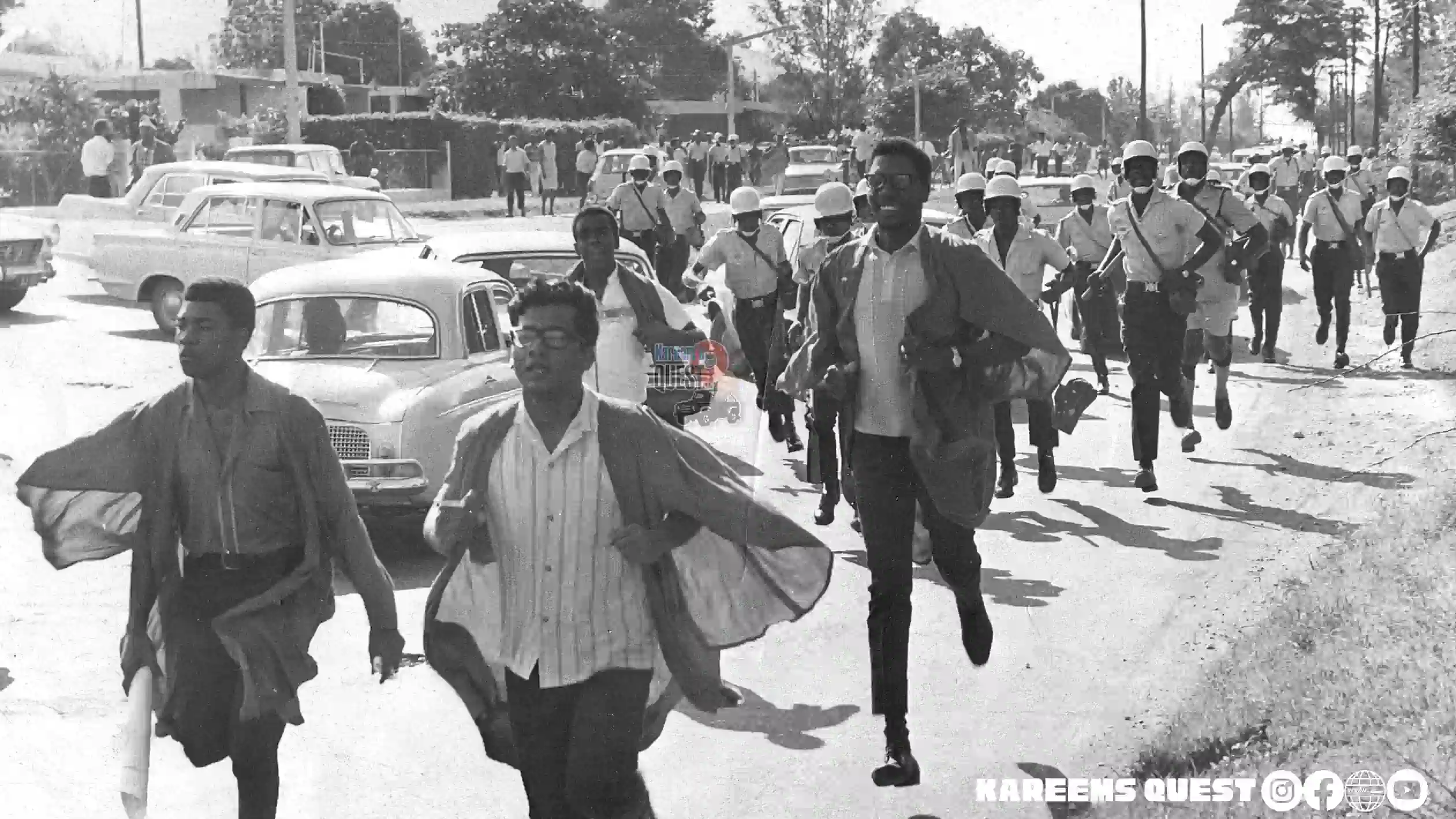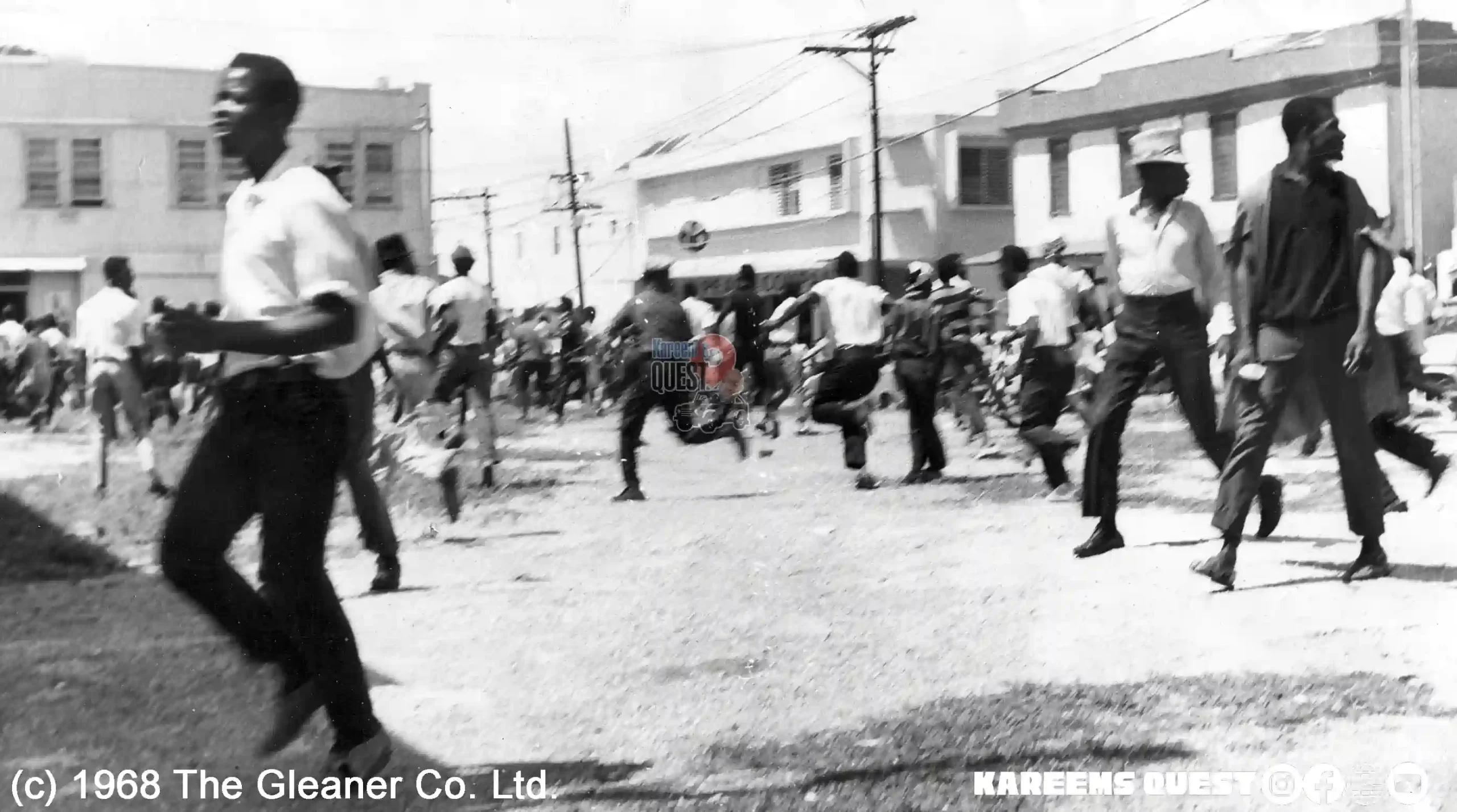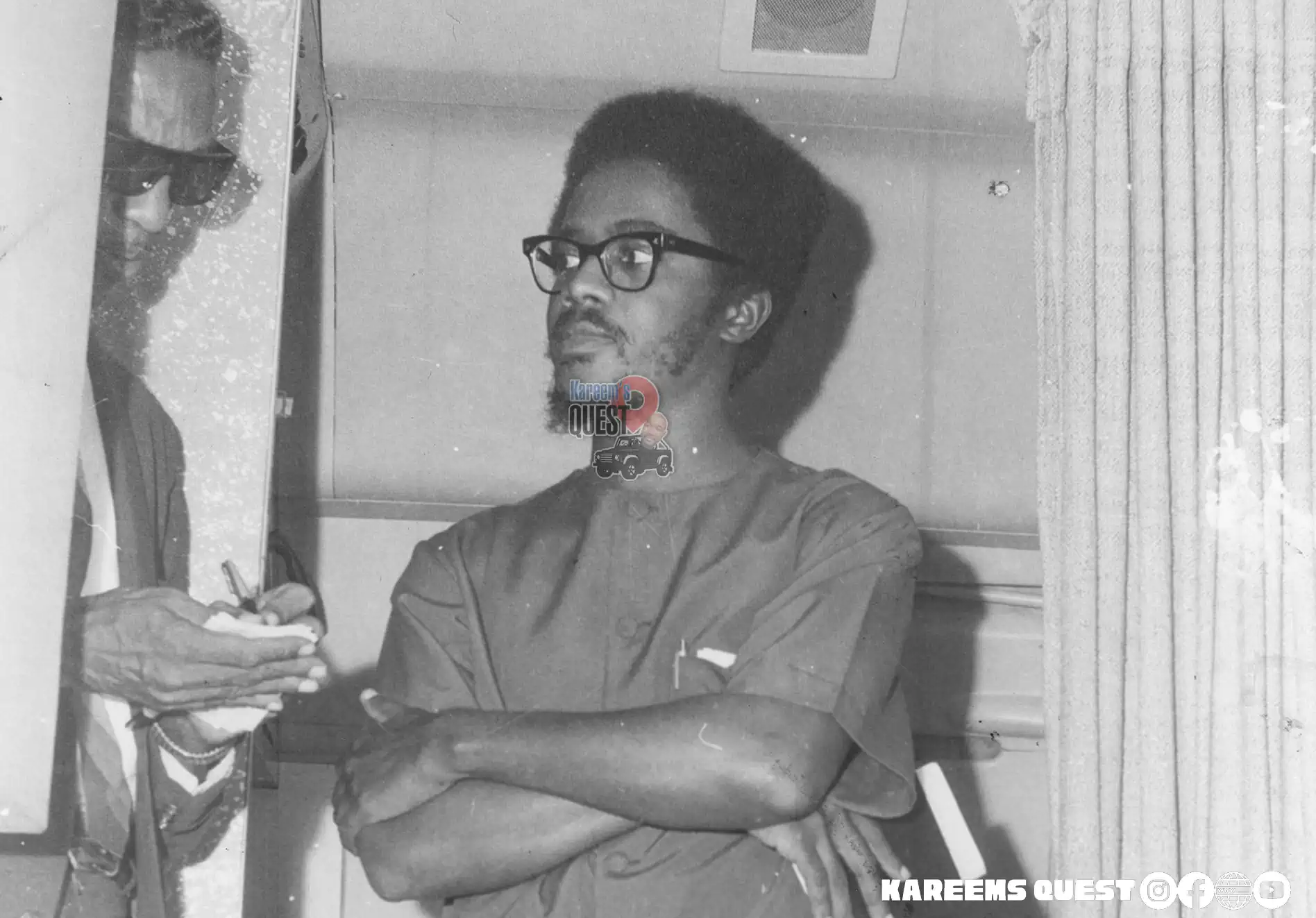
The Rodney Riots were a series of riots and civil disturbances that took place in Kingston, Jamaica, in October 1968, six years after the country’s independence. The riots were sparked by the Jamaican government’s decision to ban Guyanese university lecturer Dr. Walter Rodney from returning to his teaching position at the University of the West Indies. Rodney, a historian of Africa, had been active in the Black Power movement and had been sharply critical of the middle class in many Caribbean countries.
Rodney was an avowed socialist who worked with the poor of Jamaica in an attempt to raise their political and cultural consciousness. In the video below, a participant of the riot, Cecile Clayton, revealed to kareemsquest.com how the day unfolded for her.

The riots began on October 16, 1968, when a group of students from the University of the West Indies marched in protest of Rodney’s ban. The march was met with violence from the police, and the protests quickly spread to the streets of Kingston, as was told by Clayton to kareemsquest.com.
The riots lasted for several days and resulted in the deaths of several people and millions of dollars in property damage.
Watch the latest Kareem’s Quest videos on YouTube, OR follow us on Google, Facebook, or Instagram. You can also read more interesting stories at the bottom of the page.
The Rodney Riots were a major turning point in Jamaican history. They marked the beginning of a period of political and social unrest in Jamaica, and they helped to inspire the Black Power movement in the Caribbean. The riots also had a lasting impact on Dr. Walter Rodney, who was forced to flee Jamaica and live in exile for the rest of his life.
7 key events that led to the Rodney Riots:

- In 1968, Dr. Walter Rodney, a Guyanese historian and activist, was invited to lecture at the University of the West Indies in Jamaica.
- Rodney was a vocal critic of the Jamaican government and its policies, particularly its treatment of the poor and working class.
- The Jamaican government, led by Prime Minister Hugh Shearer, was concerned about Rodney’s influence on the Jamaican people and his potential to incite unrest.
- In October 1968, the Jamaican government banned Rodney from returning to Jamaica.
- Rodney’s supporters, including students and members of the Black Power movement, took to the streets to protest the ban.
- The protests quickly turned violent, and the Jamaican government responded with force.
- The riots lasted for several days and resulted in the deaths of several people and millions of dollars in property damage.
Watch the video below to get a first-hand recollection of the Walter Rodney riots as told by a participant of the riot, Cecile Clayton.
In the end
Dr. Walter Rodney’s last days were marked by controversy and tragedy. In 1974, he was forced to flee Guyana after being accused of inciting political unrest. He then spent the next three years living in exile in Tanzania and the United States. In 1977, he returned to Guyana to continue his political activism. However, he was assassinated just a few weeks later, on June 13, 1977.
Rodney’s assassination was a major blow to the Guyanese people and to the Black Power movement in the Caribbean. He was a charismatic and inspiring leader, and his death was a great loss. However, his legacy continues to live on. He is remembered as a martyr for the cause of social justice, and his work continues to inspire people around the world.
Write in the comment section if you remember or know anything about the Walter Rodney riots.
Sources:
https://www.thegleanerlibrary.com
https://gleaner.newspaperarchive.com
eMail: library@gleanerjm.com, 876-932-6231


